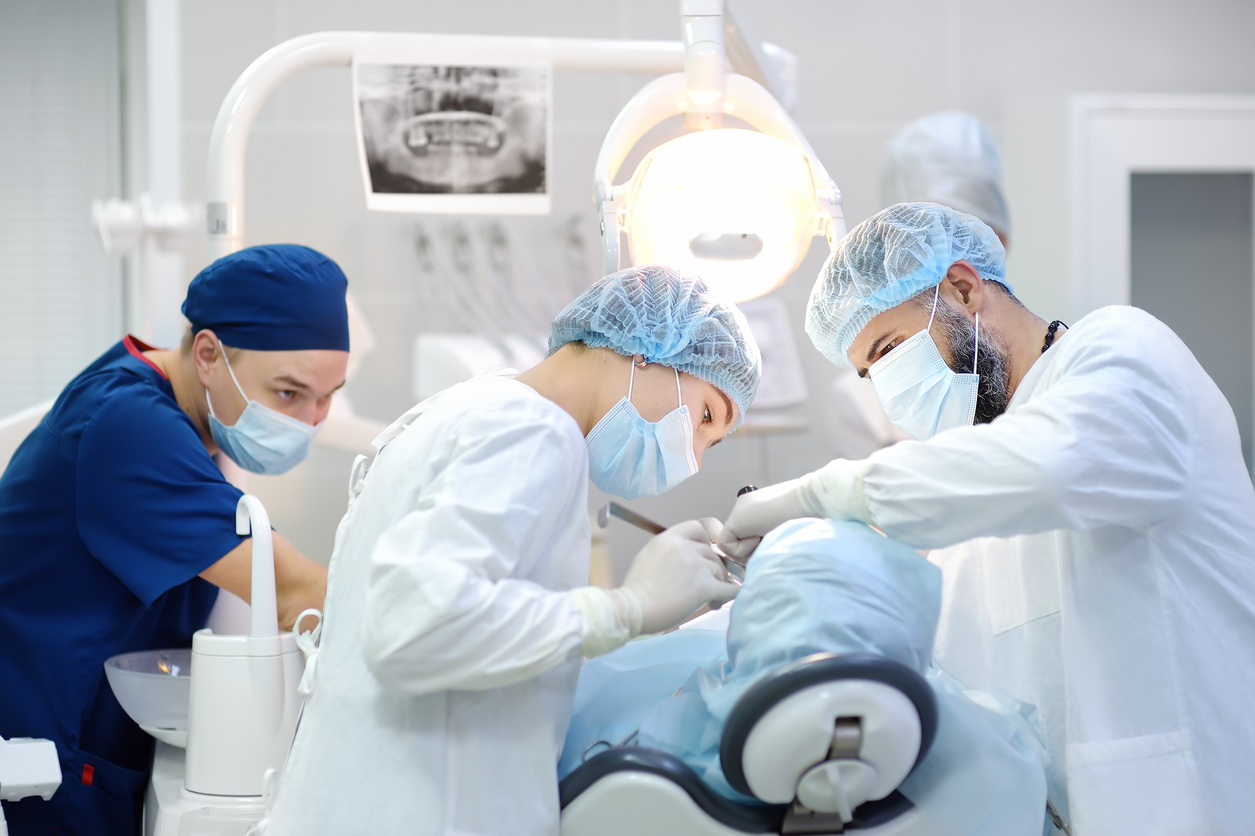Dental implants are a modern and sophisticated restorative solution for people missing one, several, or even all their teeth. Implants can significantly improve your quality of life and self-confidence. However, many patients dread the procedure of getting dental implants because they think that it is painful and complicated. But is dental implant surgery indeed painful? In this article, we answer this question.
Is Dental Implant Surgery Painful?
For most patients, dental implant surgery is not painful, as the doctor will typically use a local anesthetic or some form of sedation. However, you can still feel minor discomfort or pain when doctors administer the anesthetic via injection into the gum. The anesthetic tends to work quickly and will numb the area entirely in just a few minutes. In addition, your doctor will likely be able to increase the strength of the anesthetic if you still feel pain during the procedure.
Sedation dentistry can be used if the dental implant surgery is going to be complicated or extensive, if a patient experiences severe dental anxiety, or if a patient has a high tolerance to local anesthesia. Types of sedation used in dentistry include:
- Nitrous oxide, also known as laughing gas, is a type of sedation taken by inhaling the gas through a mask. It slows down the nervous system and reduces anxiety but does not put a patient to sleep completely. However, nitrous oxide is not effective at reducing or blocking pain, so during a dental implant surgery, it will most likely be used in combination with a local anesthetic.
- Oral conscious sedation works similarly to nitrous oxide but also creates short-term amnesia. This means that you will be semi-conscious during the procedure and can even fall asleep, but you will still be able to respond to your dentist.
- Intravenous sedation is administered via an injection directly into the bloodstream. Most patients fall asleep under intravenous sedation and typically have no memory of the procedure afterward.
- Dentists also use general anesthesia during dental implant surgery. It is unconscious sedation, meaning that you will be fully asleep during the procedure.
As you can see, there are many methods of pain prevention available, even for people with low pain tolerance or high tolerance to a local anesthetic. Talk to your dentist about your particular case and the fears you are experiencing during the consultation prior to the procedure. This way, you and your doctor can choose the most suitable option for you.
We also recommend asking your doctor all the questions about the procedure you have during the consultation. Most likely, some of the information you have is nothing more than myths about dental implants. On top of that, speaking with a professional can significantly reduce your anxiety before the procedure, making the experience much more comfortable.
Will I Feel Pain After the Procedure?
Once a local anesthetic or sedation starts wearing off, you will gradually begin to feel discomfort at the surgery site. However, in most cases, over-the-counter painkillers, such as Ibuprofen, can manage these feelings. Remember to never exceed the recommended dose of a painkiller.
Typically, the pain is most substantial on the third to fifth day after the procedure and should start reducing rapidly after that. You can expect to feel significantly less or no pain or discomfort in around seven to ten days after the procedure. If the pain is getting stronger after that or does not go away, consult your doctor as soon as possible.
Other symptoms you might experience after the dental implant surgery include:
- Minor bleeding for 24 to 48 hours
- Swelling of the face or jaw, especially on the side of the surgery
- Bruising of the face and jaw
To reduce the symptoms above, use cold compresses, applying them to the face for 15 to 20 minutes at a time with 30-minute breaks, and keep your head alleviated when lying down.
In some cases, your dentists can prescribe antibiotics to take after the procedure. Make sure to take the entire course according to the schedule. Your dentist will typically prescribe antibiotics to reduce the risk of infection.
Make an Appointment Today
Get your dental implants from a reliable and experienced cosmetic dentist in Los Angeles. Do not hesitate to call our office today and sign up for a consultation with David Kao, DDS. We use modern methods and high-quality materials to deliver the best and most long-lasting dental implants to our patients.
We look forward to your visit.



